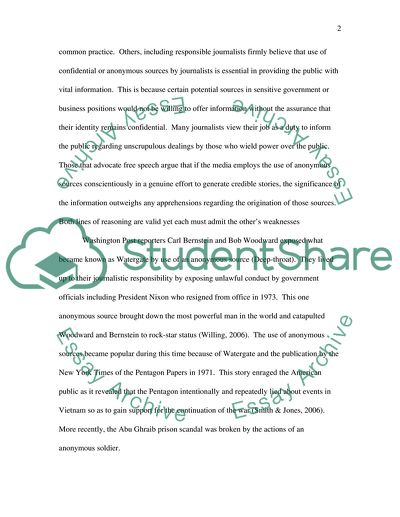Cite this document
(“Confidentiality and Anonymous Sources Assignment”, n.d.)
Confidentiality and Anonymous Sources Assignment. Retrieved from https://studentshare.org/journalism-communication/1537903-journalism-essay-confidentiality-and-anonymous-sources
Confidentiality and Anonymous Sources Assignment. Retrieved from https://studentshare.org/journalism-communication/1537903-journalism-essay-confidentiality-and-anonymous-sources
(Confidentiality and Anonymous Sources Assignment)
Confidentiality and Anonymous Sources Assignment. https://studentshare.org/journalism-communication/1537903-journalism-essay-confidentiality-and-anonymous-sources.
Confidentiality and Anonymous Sources Assignment. https://studentshare.org/journalism-communication/1537903-journalism-essay-confidentiality-and-anonymous-sources.
“Confidentiality and Anonymous Sources Assignment”, n.d. https://studentshare.org/journalism-communication/1537903-journalism-essay-confidentiality-and-anonymous-sources.


